Why integrating SEO with other marketing channels is imperative for a successful online strategy
Having a defined and targeted Search Engine Optimization (SEO) strategy is without a doubt a critical factor in driving traffic to your site. However, for a fully optimized marketing strategy, it is vital that SEO is also integrated with other offline and online channels, across the customer lifecycle. Smart Insights’ Customer Lifecycle model shows a visual representation of what a fully integrated marketing strategy should include, using the RACE framework:
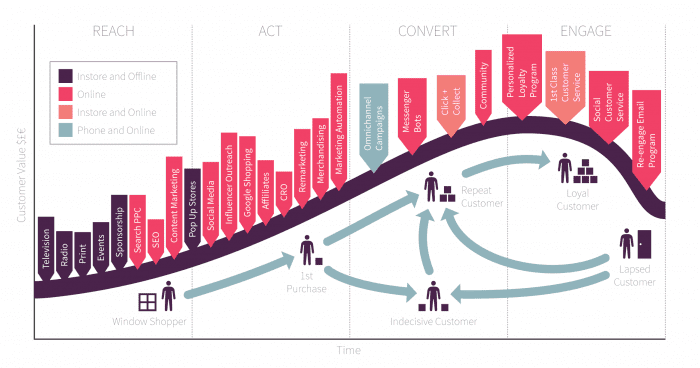
To achieve long-lasting, quality results, SEO needs to be integrated into your overall marketing strategy. SEO is vital to the first stage of RACE - reach. SEO is reaching your audience via search engines and meeting them with the answers to the questions they ask. This will not only help to maximize conversions but, will also ensure a synergy between your marketing efforts.
SEO efforts such as competitive keyword research, on-page optimization, landing pages, site structure and backlinks provide more fruitful results when combined with social media platforms and PPC efforts, and apart from helping you get more reach across multiple channels, it’ll also help you optimize your individual marketing tasks.
In this post, I’ll cover a few strategies that you can use to integrate and piggyback off your SEO efforts.
1. Use AdWords to find better keywords and optimize for them
This is the most obvious advantage of integrating SEO with PPC.
But let’s just pause for a second and think:
With Google’s reaffirmation that almost 15% of all searches are new, there is almost no way to determine if new keywords have sufficient buyer intent.
In such a situation, it’s a hit and miss game to create in-depth content targeting such keywords. This is where PPC can help you.
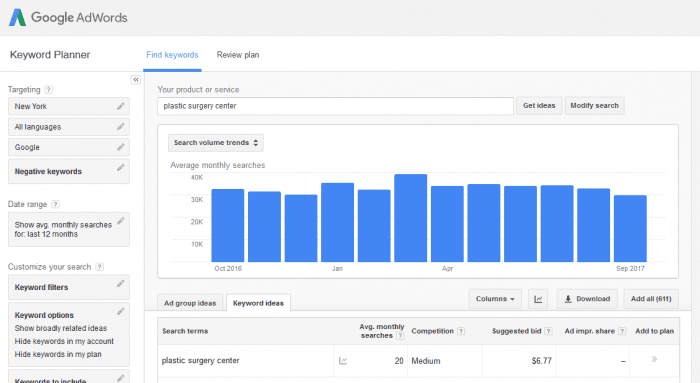
Just set up a PPC campaign targeting those keywords, and try to mock up a few pages to convert that traffic. If the conversion rates look good, you can go ahead and create stellar content that you can optimize for organic rankings.
Use paid social ads to measure your performance
Paid social ads include Facebook ads, sponsored tweets, Instagram ads, Facebook retargeting and more.
Let me give you a simple example. Take a look at the tweet below:
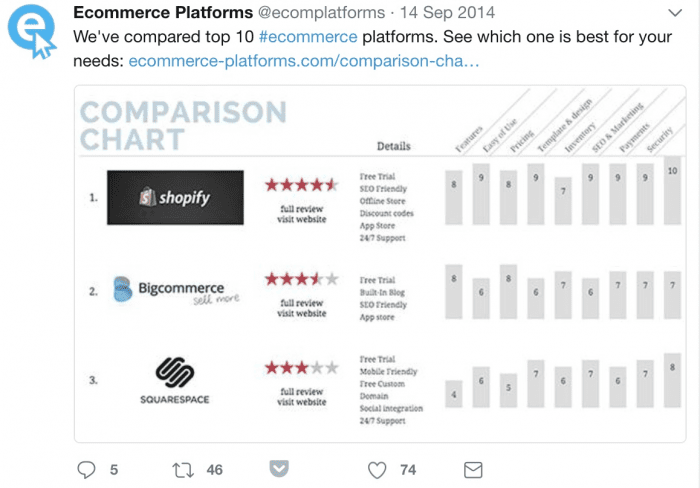
We actually promoted this tweet for two purposes:
- We wanted to know which demographic group this tweet resonated with the most
- We used it to test headline ideas
The first goal helped us find craft a persona for users that loved such comparisons (we’ve done a ton of them since). By creating such a persona, we tweaked our language to match that of the persona.
The second purpose helped us in finding a good title for the post that drove clicks: Best Ecommerce Platforms and Shopping Cart Software Comparison Chart (March 2017)
Nifty, huh?
IMO, Facebook ads are a better option if you're looking to achieve goal 1. Facebook audience insights help you find our demographic groups at a much more granular level so that you can craft better personas for other marketing efforts.
3. Consider split testing with AdWords or Social Media Platforms
I’m a big believer in the power of SEO to drive consistent traffic. But we’ve seen a problem with almost all the ecommerce clients we’ve worked with (and over the years, we’ve worked with hundreds).
Some pages just don’t convert
And the sad part:
You realize this after months of grinding to get the page to rank.
But we overcame this problem after we started using social media and Adwords to split test content and pages.
A split test is a marketing strategy where two elements of a marketing campaign are tested against each other to analyze which one can deliver the best results. This testing helps you to feel confident that your ads/posts are reaching the right people, in the right place, at the right cost, so that they convert.
And almost everything can be tested: from images to landing pages to blog posts. Once we’re confident that a page will convert well after A/B testing and conversion optimization using Adwords and paid social media traffic, we can go all-in with our SEO and link building efforts to rank the page.
And this can be used for much more than just blog posts:
Facebook split testing supports business objectives such as traffic, app installs, lead generation, video views and even direct conversions. Facebook recommends 4-day tests for the most reliable results, and if you aren't sure about an ideal time frame, you can start with 4 days.
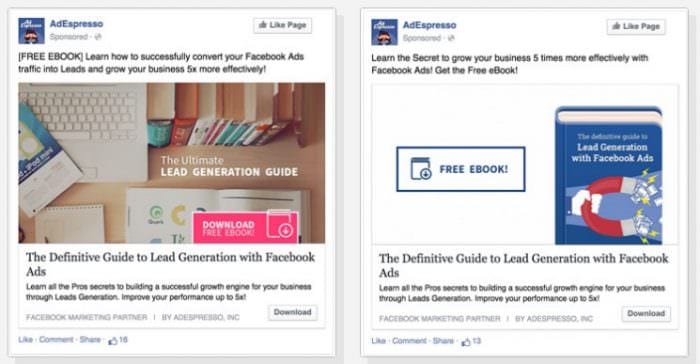
And here’s a tip (we learned this the hard way):
Make sure that you are not using this same audience for any other Facebook campaign that you're running at the same time.
4. Google and Facebook remarketing
Remarketing helps you reach people who have visited your website in the past.
We all know that.
But by integrating SEO efforts with remarketing, you can fine tune what I like to call ‘pushes’ that help users in taking the buying decision.
The effectiveness of these ‘pushes’ vary with niche and pricing levels, but here are some good examples:
- Product video descriptions that give users a clearer picture of the product
- Discounts and offers
- Case studies (for B2B businesses)
Pushes 1 and 2 help particularly well for ecommerce stores where users don’t convert on the first step.
Push 3 is a huge hack to get people to make the buying decision for your service or SaaS product.
You can run remarketing campaigns both via Adwords and Facebook. Remarketing campaigns in AdWords provide you with access to users through the Adsense network.
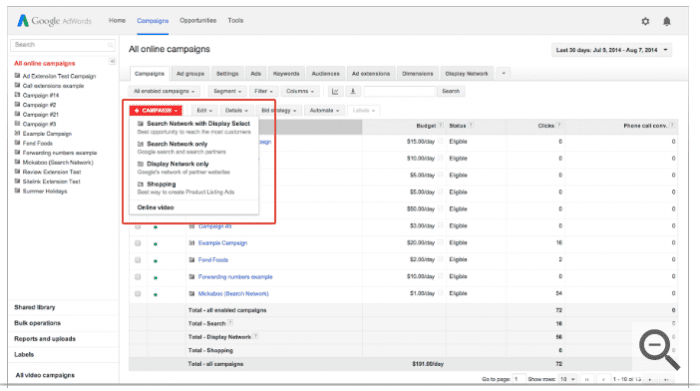
Facebook remarketing is designed to help you target your previous visitors on Facebook. I prefer this over Google remarketing as the audience targeting capabilities are much more granular, and the types of ads that I can show to users who abandon carts are much more diverse.
Have any great hacks or strategies that you use by integrating SEO with other marketing efforts? Share them with us on Twitter or on our member's Facebook group!

Thanks to Catalin Zorzina for sharing their advice and opinion in this post. Catalin is the founder of
Inspired Mag.His current obsessions are Sun Ra and matcha tea. He has been in the ecommerce industry for over a decade and has worked with brands of all sizes to improve all areas of their businesses- from their online stores to the accounting and fulfillment processes. You can follow him on
Twitter or connect on
LinkedIn.








 Thanks to Catalin Zorzina for sharing their advice and opinion in this post. Catalin is the founder of
Thanks to Catalin Zorzina for sharing their advice and opinion in this post. Catalin is the founder of 


